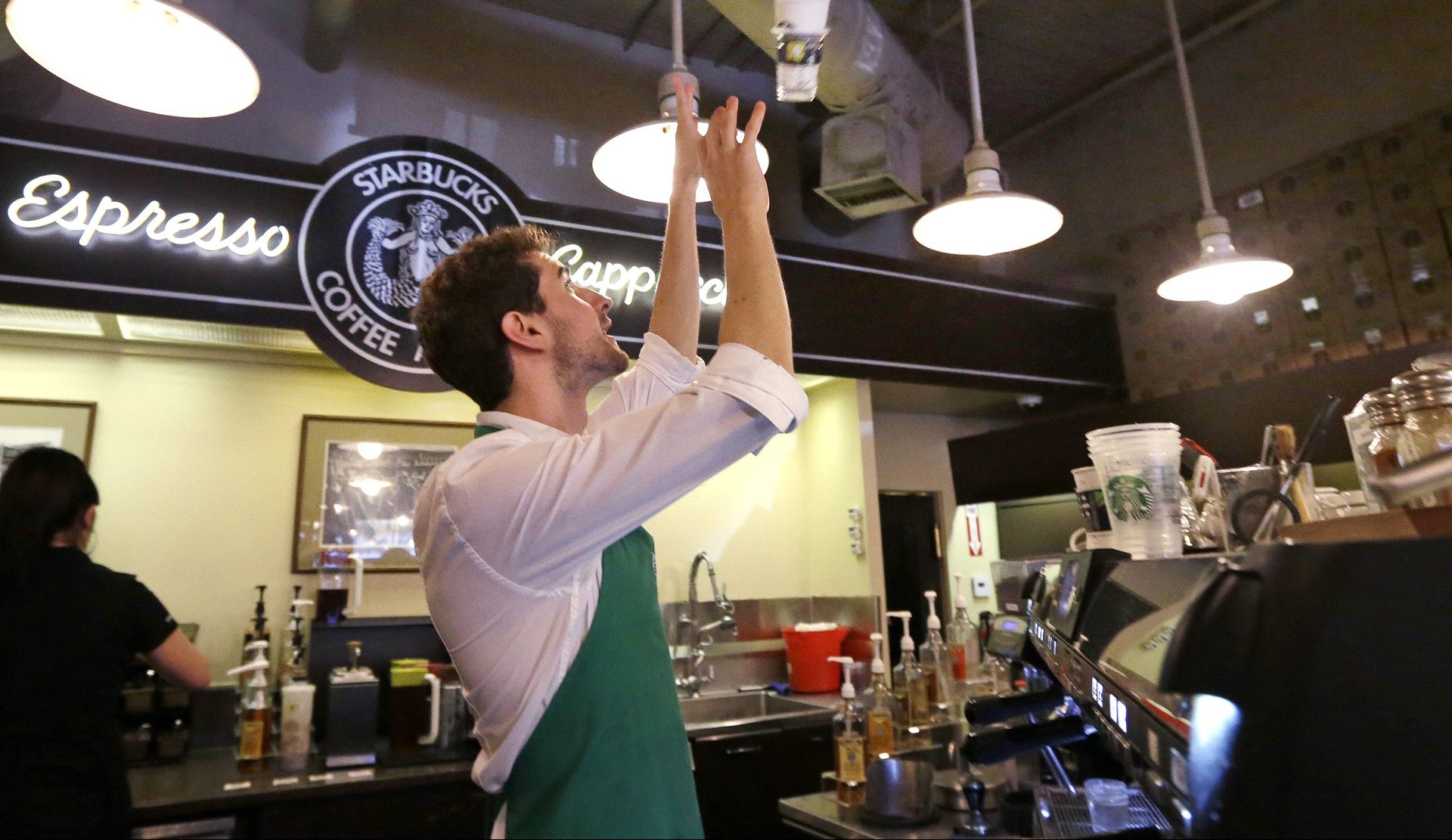Starbucks baristas now get half as much paternity leave as its office workers
Like a medium-bodied Ethiopian roast, progress at Starbucks drips out slowly.


Like a medium-bodied Ethiopian roast, progress at Starbucks drips out slowly.
The company is offering six weeks paid leave for non-birth parents who work at its stores, giving new fathers the same time off as new mothers and adoptive parents. The expanded leave policy was long sought by employees, and was part of a suite of pay increases and other new benefits, such as paid sick leave, announced today (Jan. 24) by Starbucks. The company credited the new US tax laws for freeing up $250 million to pay for it all.
The improved leave is worth celebrating, but it also serves as a reminder of how far the company has to go before it treats all its employees equally. While Starbucks is eager to congratulate itself on the benefits it offers its in-store staff, its baristas are still treated much differently than white collar, non-store workers.
Salaried birth mothers, for example, are eligible for up to 18 weeks of maternity leave, compared to six for baristas. Non-birth parents get 12 weeks of parental leave, compared to the six weeks just announced. Vacation time, personal days, and life insurance benefits are all more generous (pdf) for office staff. Starbucks did not respond to an email from Quartz at Work.
Starbucks isn’t alone in its bifurcated approach to benefits. Most US companies in retail or hospitality industries with a large low-wage workforce have two-tiered structures, lavishing generous benefits on corporate employees while doling out just a fraction to cashiers and house cleaners. Employees making more than $70,000 year are more than twice as likely to have paid parental leave than those making less than $30,000, and only 6% of low-wage workers have access to paid leave, according to a May report (pdf) from Paid Leave US, an advocacy group (those numbers have have changed following Walmart’s announced expansion of its paid leave this month).
Starbucks has been pressured to improve its baristas’ benefits for years by employees, activists, and even shareholders, yet it wasn’t until it received a massive tax cut that it moved to make even modest changes. And Starbucks is a company that prides itself on its progressive attitudes to employee relations. Change at more regressive companies will come slower, or never.
The US is still the only wealthy country without mandated paid family leave, and a new federal law may be the best way to address these inequities. Both parties agree it’s an idea whose time has come.